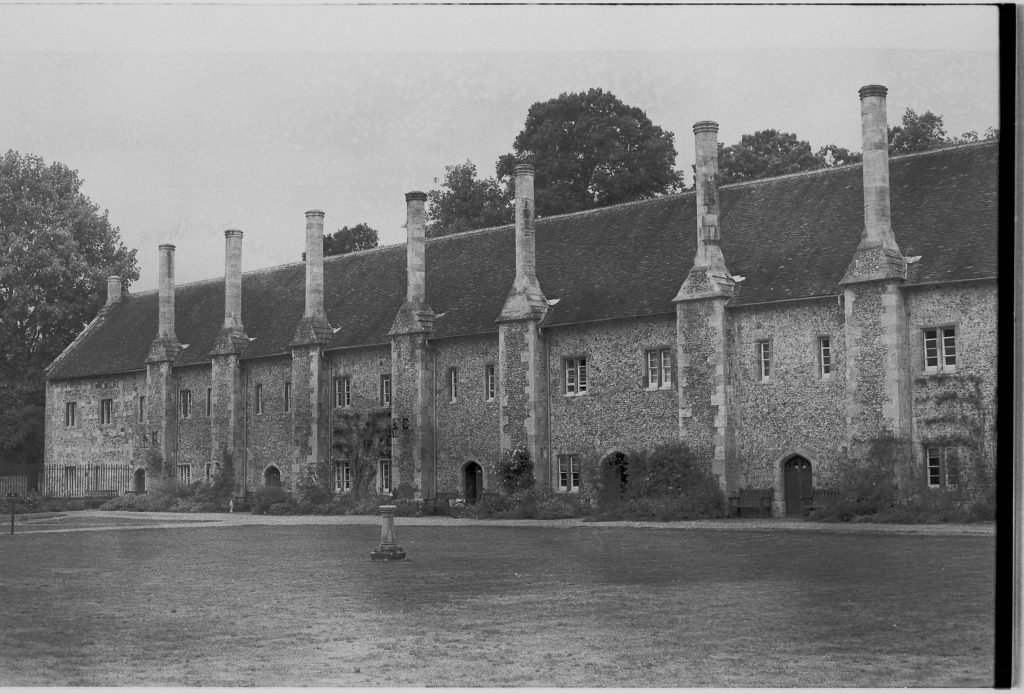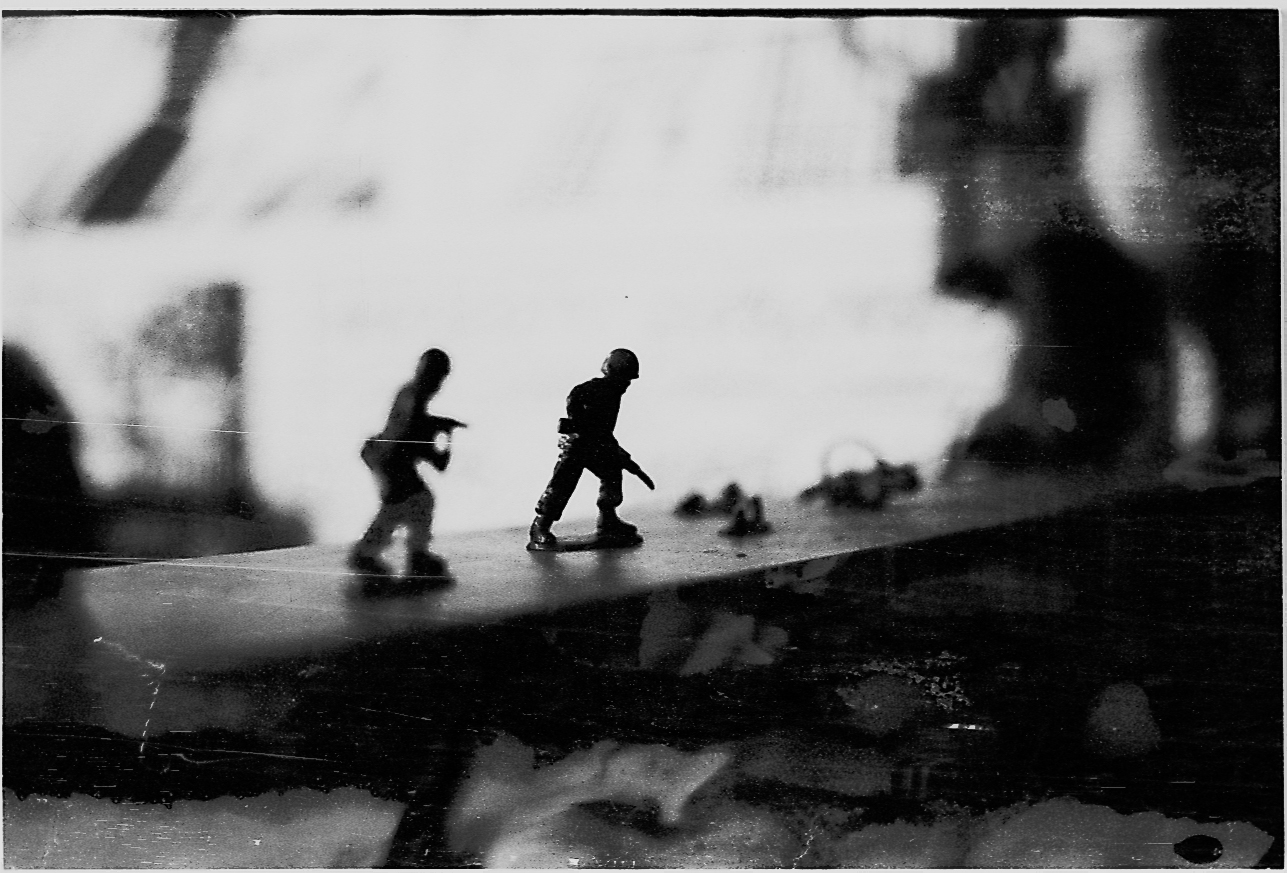
Analogue Photography and the Joy of Imperfection
For the past few months I’ve been carrying around a 50mm lens on a film camera, and it’s quietly changed the way I look at the world. At first it felt restrictive. No zooming in or out, no dramatic wide shots, just this very ordinary piece of glass on the front of my camera. But over time it has been teaching me to stop searching for the literal big picture and instead notice the little things.
It’s a shift I didn’t see coming. When I used to head out with my camera I would be on the lookout for sweeping landscapes, grand buildings, or the kind of scene you could frame and instantly say “ah yes, that’s Paris” or “that’s the Lake District.” The big obvious shots. But this 50mm lens doesn’t really let me get away with that. It nudges me closer, makes me crouch down, encourages me to look for details.
Suddenly I’m noticing the curve of an iron gate, the way sunlight falls on peeling paint, a child’s hand clutching a toy. Things I might have walked straight past before. It feels as though I’ve stopped scanning for the billboard view and started appreciating the overlooked fragments. Small things that say just as much about a place or a moment as the wide open shots ever could.
It has been good for me, this slowing down and learning to look differently.
This weekend we tried something else new. We decided to develop our own film at home. I’ll admit, the whole process felt daunting before we started. There’s so much to remember: chemicals at the right temperature, timings that feel like they need a surgeon’s precision, darkness so complete you start to second guess your own hands. My mum had generously bought me an AGO developer so in theory it was all automated but it was still daunting.
Our results? Mixed at best.

The negatives came out with what most people would probably call flaws. Light leaks, uneven development, patches that looked messy and unpredictable. To an outsider, they’d seem like ruined photos. But when I hung them up to dry and really looked at them, I realised something.
Nobody else in the world has those images. Nobody else ever will.
Every frame is unique, not just because of the subject I chose to photograph, but because of the way the film developed. Those streaks of light, those shadows bleeding into the edges, they can never be repeated. They belong only to that roll of film, that exact Sunday afternoon, those exact mistakes.

And the thing is, some of them look stunning. Not polished, not perfect, not Instagram-ready, but beautiful in a way I can’t put into neat words. They carry the fingerprints of the process itself. The photographs aren’t pretending to be anything other than what they are: imperfect, flawed, completely real.
There’s something freeing in that.
When you spend years with digital photography, you get used to the idea that every shot can be perfect. You can take 200 pictures of the same thing, delete the ones you don’t like, edit the rest until the sky is bluer, the skin is smoother, the shadows less harsh. You can spend hours making sure your feed looks cohesive and polished.
Film doesn’t give you that control. Developing film at home definitely doesn’t. And that’s the joy of it.
I’ve found myself letting go of the idea that there are rules. Who says a light leak ruins a picture? Who says a shot has to be perfectly sharp to capture something meaningful? Why should I aim for clean and flawless when the messy, unpredictable outcome makes me stop and stare for longer?

There is no rulebook, only the pictures you make.
The 50mm lens has been part of this shift in my thinking too. At first I thought of it as limiting. Now I realise it’s teaching me to see. It’s not about zooming to make the scene fit my idea of what a photo should be. It’s about moving my own feet, changing my own perspective, paying attention to the small details that tell a bigger story.
It feels like the same lesson the film is giving me. That sometimes you get more by doing less. By stripping away the bells and whistles. By trusting your eye, trusting the process, and being willing to accept the outcome even if it doesn’t look the way you expected.
The world is noisy and fast. Cameras on our phones are clever and instant. There’s a constant temptation to rush, to capture everything, to move on to the next thing. Film pushes back against that. It makes you wait. It makes you trust. It makes you accept.
And sometimes, it surprises you with something so beautiful you couldn’t have planned it if you tried.
Looking at those “ruined” negatives made me think about uniqueness. Every photograph is unique, of course. The light is never quite the same, the expression changes in a fraction of a second, a cloud moves, a bird flies past. But with digital, we don’t always treat them as unique. We chase duplicates, retakes, backups. We press the shutter dozens of times to make sure we “get the shot.”
Film is different. The negatives hanging in my kitchen right now, with their leaks and their imperfections, exist nowhere else. They can’t be replicated. And far from being frustrated about that, I feel grateful. Grateful that I have something no one else has. Grateful that they are mine, not in a possessive way, but in the sense that they belong only to me and that moment.
St Cross in Winchester has existed for close to 1000 years and yet nobody has the photos above.
It has given me a new appreciation for the idea of originality. Not in the sense of being inventive or clever, but in the literal sense of creating something that has never existed before. Something that nobody else can copy, however hard they might try.
Photography has always been about memory for me. Capturing moments so I can look back later and remember how it felt to be there. But now, with film, it feels like more than that. It’s about honouring the moment as it was, not how I want it to be. It’s about letting go of the desire for control and embracing the surprises.
Yes, some of the shots are out of focus. Yes, some are blown out or half covered in light streaks. But when I look at them, I don’t see mistakes. I see life. I see the beauty of something imperfect and unrepeatable.
And that feels more precious than the polished shots I might have once chased.
So for now, I’m going to keep walking with my 50mm lens, looking for the small details that I might otherwise have missed. I’m going to keep developing film at home, even if half my rolls come out covered in leaks and streaks. Because each one will be a little reminder that photography doesn’t have to follow rules.
The beauty of analogue photography is that it resists perfection. It resists control. It resists sameness.
Instead it offers us something rare. A chance to see the small things. A chance to celebrate what is unique. A chance to fall in love with the unexpected.
And that, to me, feels worth far more than a flawless big picture ever could.
